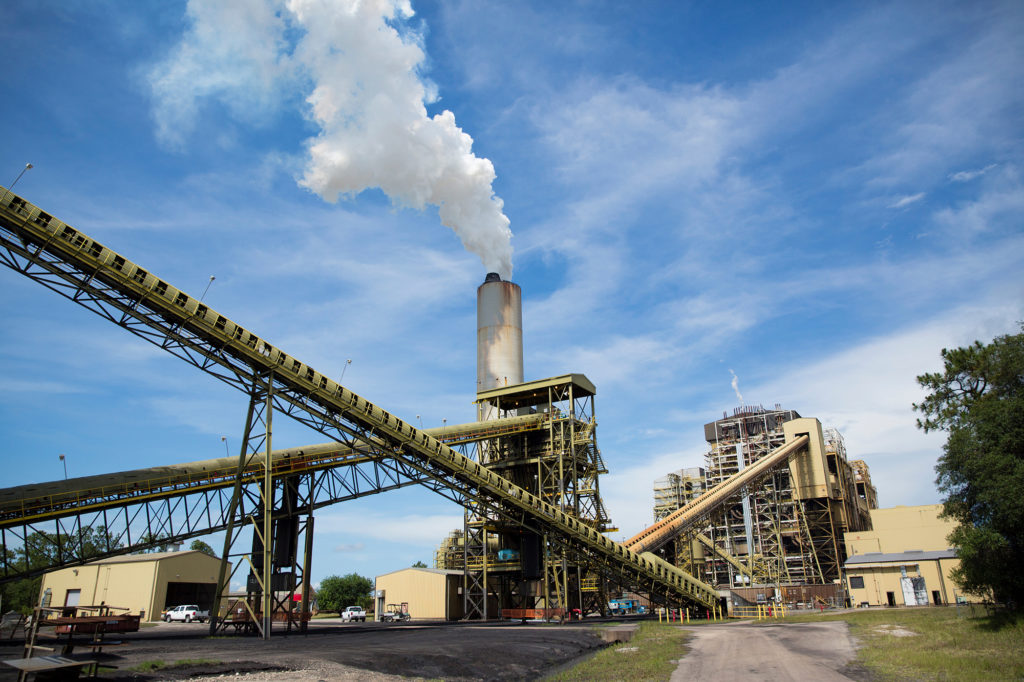
Electric cooperatives hailed an order by President Trump directing the Environmental Protection Agency to review its Clean Power Plan, which would have forced the premature closure of co-op coal-based power plants.
“Affordable and reliable power is fundamental to a successful economy. We appreciate the Trump administration working to protect American families and businesses from the potentially devastating impacts of the Clean Power Plan,” said NRECA CEO Jim Matheson. Electric cooperatives had challenged the regulation in court.
“Today’s announcement is an important step toward protecting our cooperatives and millions of Americans from the costly impacts of the CPP as co-ops continue innovating and moving toward cleaner energy production,” Matheson said. “We look forward to working with the administration to advance our common goals and improve the lives of every rural American.”
Matheson attended a March 28 ceremony at EPA, where Trump signed the executive order establishing a process to repeal or revise the controversial rule that set the first-ever carbon dioxide emission limits on existing plants for states to follow.
“Perhaps no single regulation threatens our miners, energy workers and companies more than this crushing attack on American industry,” Trump said at the signing event.
The order also addresses other regulations and agency guidance documents that affect NRECA members and the energy industry.
A repeal or revision of the Clean Power Plan “is welcome news for electric cooperatives across the nation seeking flexibility and fairness, but it’s not yet the end of the journey,” said Matheson.
“Now that President Trump has issued his executive order, we look forward to the EPA undoing this rule and taking a closer look at other current regulations.”
The order is the first step in a lengthy process that will require a full rulemaking, including development of a draft proposal, opportunity for public input and response to that input.
As NRECA did in the development of comments on the Clean Power Plan and subsequent litigation, it will work closely with electric co-op members and the administration as EPA proceeds.
By targeting affordable and reliable coal generation, the Clean Power Plan “hit many of our electric cooperatives extremely hard by forcing them to prematurely shutter existing power plants,” Matheson said.
“Those co-ops would in essence be charged twice for their electricity—once to continue paying down the loans on the closed power plants and again for the cost of purchasing replacement power.”
In October 2015, NRECA and 39 generation and transmission cooperatives petitioned the U.S. Circuit Court of Appeals for the District of Columbia to review and reject the Clean Power Plan.
That effort laid the groundwork for a stay by the Supreme Court, which put the rule on hold in February 2016, directing the D.C. Circuit Court of Appeals to reconsider other factors in the litigation.
At the signing of the executive order, the Department of Justice was quick to ask the D.C. Circuit Court to allow rule reconsiderations by EPA on the Clean Power Plan and on the new source rule while suspending further actions by the court until EPA completes that process.
The states of North Dakota and West Virginia are lead petitioners in lawsuits against the rules.
“Pursuant to these developments, the Clean Power Plan is under close scrutiny by the EPA, and the prior positions taken by the agency with respect to the Rule do not necessarily reflect its ultimate conclusions,” Justice Department lawyers for both cases filed the motion in the D.C. Circuit March 28.
Cathy Cash is a staff writer at NRECA
Editor’s note: This story was updated March 29 to reflect the Department of Justice actions.